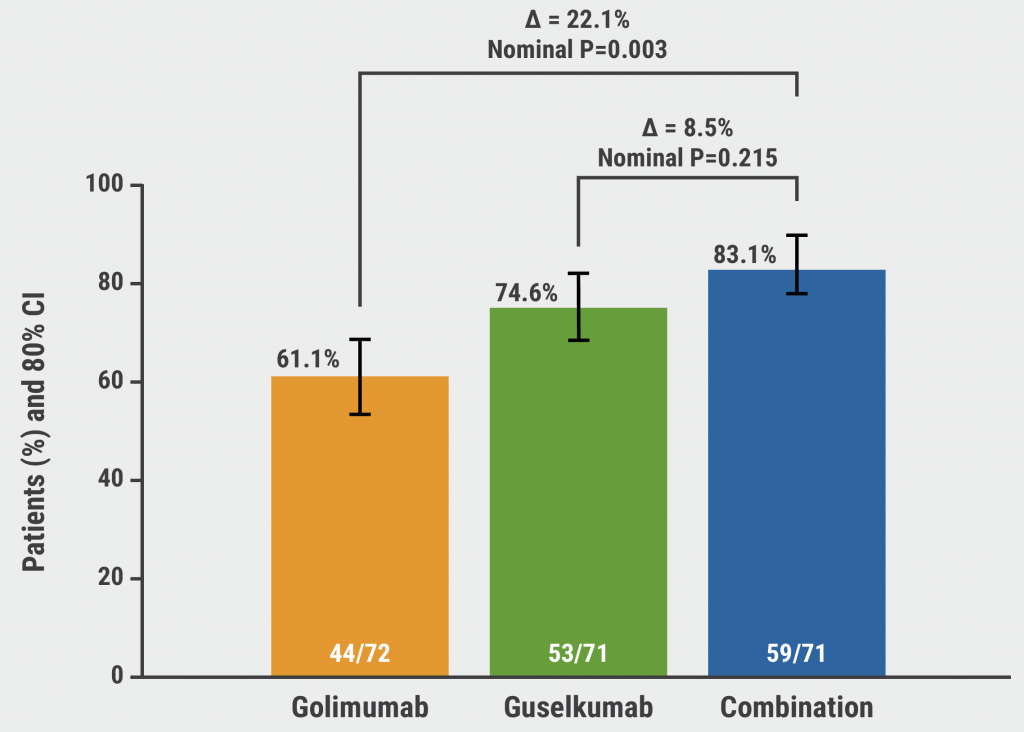The authors suggest avoiding cephalosporins and penicillin with beta lactase inhibitors (penicillin-BLI) and perhaps treating instead with fluoroquones or macrolides.
"Part of our results was somewhat expected, namely the effect of macrolide antibiotics, which are widely used for their presumed immunomodulatory function," Dr. Yuri Gorelik of Rambam Health Care Campus in Haifa told Reuters Health by email on behalf of the authors. "However, the sizes and direction of the effects of other antibiotic classes, such as the cephalosporins and fluoroquinolones, were surprising and novel."
"We are now further investigating the immunomodulatory effects of antibiotics and their possible effect on biologic therapy in IBD and immunogenicity in general, including effects on vaccination responses," he said. "We will focus on an in-depth analysis of the microbiome, immune and metabolic changes caused by different antibiotics, and on further epidemiological studies in this area to substantiate the effect of specific antibiotic treatments on IBD patient outcomes in the context of biologic therapy."
As reported in Gut, the team analyzed data from the epi-IIRN (epidemiology group of the Israeli IBD research nucleus) on 1, 946 IBD patients (average age, 29; about 55% men) treated with anti-TNF who had available ADA levels.
After a median follow-up of 651 days from initiation of therapy, 363 had positive ADA.
A Cox proportional hazard model showed an increased risk of ADA development in patients who used cephalosporins (HR, 1.97) and penicillin-BLI (HR, 1.4). A reduced risk was observed in patients treated with macrolides (HR, 0.38) or fluoroquinolones (HR, 0.20).
Next, the team treated specific pathogen- and germ-free C57BL mice with the appropriate antibiotics, challenged them with infliximab, and assessed ADA after 14 days.
Significantly increased ADA production was seen in mice pretreated with cephalosporin versus macrolides. Germ-free mice produced no ADA.
Further, as was seen with the human patient data, mice pretreated with cefuroxime demonstrated overall higher ADA levels, whereas azithromycin or no antibiotics showed lower ADA levels.
Dr. Gorelik said, "Although our findings are preliminary and further research is required, we believe that clinicians could take into account these results when selecting antibiotic therapies for IBD patients for various indications."
Dr. Matilda Hagan, Director, Mercy GI Fellowship and Medical Co-Director at the Center for Inflammatory Bowel and Colorectal Diseases at Mercy in Baltimore, commented on the study in an email to Reuters Health.
"The findings are certainly interesting," she said. "Development of immunogenicity is likely as complex as the mechanisms underlying the development of the disease itself, (involving) a sophisticated interplay between genetics, environmental exposure, microbiome and the immune system."
"I have not observed an effect or an association of antibiotic exposure on the development on ADAs in my practice," she said.
"The study is bolstered from a mere association study with a mouse model to establish causation; however, generalization of the results is premature," she said. "What matters are the conditions and circumstances for antibiotic prescriptions and indications for checking ADAs. For example, some providers check levels in a proactive manner, in the absence of clinical concerns, and others check reactively when there are clinical concerns."
"This study strengthens the notion that the microbiome is important in the disease process itself and likely in response to treatment," she said. "However, our ability to modify the microbiome in a meaningful way that is favorable to our goal with precision, beyond fecal transplant, remains to be established."
The study was supported by the Leona M. and Harry B. Helmsley Charitable Trust and the Israeli Ministry of Science and Technology.
SOURCE: https://bit.ly/3xZy4Av Gut, online August 3, 2021.
By Marilynn Larkin
Posted on
Previous Article
« Infections, low IgG seen in many kids receiving rituximab for rheumatic disease Next Article
More than half of teen e-cigarette users report cessation intention »
« Infections, low IgG seen in many kids receiving rituximab for rheumatic disease Next Article
More than half of teen e-cigarette users report cessation intention »
© 2024 Medicom Medical Publishers. All rights reserved. Terms and Conditions | Privacy Policy
HEAD OFFICE
Laarderhoogtweg 25
1101 EB Amsterdam
The Netherlands
T: +31 85 4012 560
E: publishers@medicom-publishers.com


